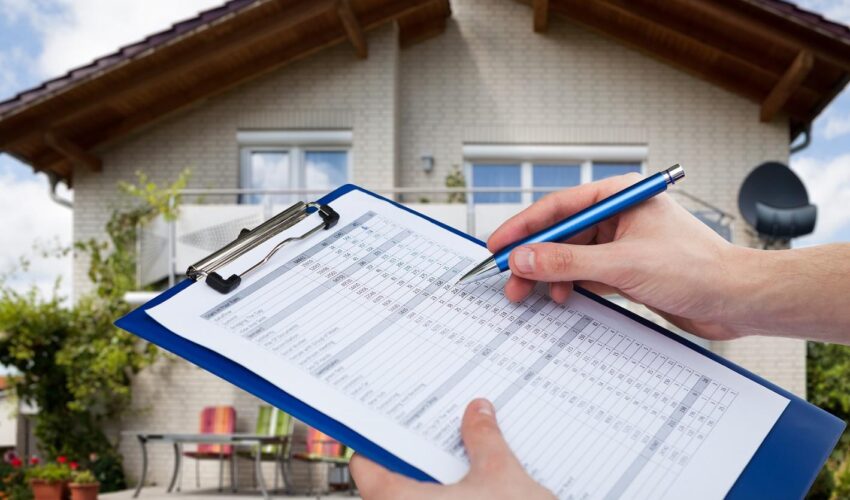An inspection service is a professional evaluation of a property or product to assess its condition, quality, and compliance with relevant regulations and standards. cheap home inspections services are commonly used in real estate transactions, construction projects, and consumer product purchases to provide buyers, sellers, and stakeholders with accurate and objective information about the item being inspected.
An inspector will usually evaluate the item in question and provide a written report that outlines any issues or problems that were identified during the home inspection
The purpose of an inspection service is to minimize the risk of unexpected problems or issues arising after the transaction is completed, and to help ensure that the buyer or owner has a clear understanding of the item’s condition.
A Qualified Home Inspector
A Key Property Inspection Group is a professional who has been trained and certified to inspect homes and buildings for potential problems or issues. They are equipped with the knowledge and skills to evaluate the various components and systems of a home, including the structure, roof, electrical and plumbing systems, HVAC, and more.
Home inspectors use specialized tools and techniques to identify any problems or potential hazards and provide a detailed report to the buyer or owner that outlines their findings.
A qualified home inspector must have the experience and education necessary to conduct thorough and accurate inspections, and must adhere to industry standards and regulations. Choosing a qualified home inspector can help protect a potential homebuyer’s investment and ensure that they have a clear understanding of the condition of the home they are buying.
Services in Home Inspection
A home inspection typically covers the following services:
Structural Inspection:
An evaluation of the foundation, walls, roof, and other major structural components of the home.
Exterior Inspection:
Inspection of the exterior walls, roof, gutters, windows, and doors, to identify any damage or maintenance issues.
Interior Inspection:
Evaluation of the electrical, plumbing, heating, ventilation, and air conditioning systems, as well as the interior walls, flooring, and ceilings.
Roof Inspection:
A thorough evaluation of the roofing system, including the shingles, flashing, and gutters, to identify any leaks or damage.
Electrical Inspection:
An examination of the electrical wiring, panels, and fixtures, to ensure they are safe and functioning properly.
Plumbing Inspection:
An evaluation of the plumbing system, including the pipes, faucets, and water heater, to identify any leaks or problems.
Appliance Inspection: An assessment of any built-in appliances, such as ovens, dishwashers, and refrigerators, to determine if they are functioning properly.
The inspector will also evaluate the home’s general safety and accessibility, checking for potential hazards such as carbon monoxide detectors and smoke alarms. The inspector’s final report will summaries their findings and provide recommendations for any necessary repairs or upgrades.
 Buyers Expectations
A cheap home inspections can typically expect the following from a home inspection: A thorough evaluation of the home: A qualified home inspector will thoroughly evaluate the various systems and components of the home, including the structure, roof, electrical and plumbing systems, HVAC, and more.
A comprehensive report: The inspector will provide a written report that outlines their findings, including any potential problems or issues that were identified during the inspection.
Timely inspection: The inspector will typically complete the inspection within a few hours, depending on the size and complexity of the home.
Objective assessment: The inspector will provide an objective and impartial assessment of the home’s condition, without any bias towards the buyer or seller.
Peace of mind: The inspection provides the buyer with peace of mind, knowing that they have a clear understanding of the home’s condition and any potential problems that may need to be addressed
It is important for the buyer to be present during the inspection and to ask the inspector any questions they may have. The buyer should also review the inspector’s report carefully and consider any recommendations or repairs that may be needed.
Buyers Expectations
A cheap home inspections can typically expect the following from a home inspection: A thorough evaluation of the home: A qualified home inspector will thoroughly evaluate the various systems and components of the home, including the structure, roof, electrical and plumbing systems, HVAC, and more.
A comprehensive report: The inspector will provide a written report that outlines their findings, including any potential problems or issues that were identified during the inspection.
Timely inspection: The inspector will typically complete the inspection within a few hours, depending on the size and complexity of the home.
Objective assessment: The inspector will provide an objective and impartial assessment of the home’s condition, without any bias towards the buyer or seller.
Peace of mind: The inspection provides the buyer with peace of mind, knowing that they have a clear understanding of the home’s condition and any potential problems that may need to be addressed
It is important for the buyer to be present during the inspection and to ask the inspector any questions they may have. The buyer should also review the inspector’s report carefully and consider any recommendations or repairs that may be needed.
Report in Writing
A home inspection report is a written document that summarizes the inspector’s findings and observations from the inspection. The report is typically delivered to the buyer within a few days of the inspection and provides a detailed assessment of the home’s condition.
The report typically includes:
An overview of the inspection: The report will begin with a summary of the inspection process and what was included in the evaluation.
Details of any major issues: The report will identify any major problems or issues that were identified during the inspection, such as structural damage, electrical issues, or plumbing leaks.
Recommendations for repairs: The inspector will provide recommendations for any necessary repairs or upgrades to address any problems or issues identified during the inspection.
Images and descriptions: The report will typically include images and descriptions of any issues or problems that were identified during the inspection.
Overall assessment: The inspector will provide an overall assessment of the home’s condition and any areas of concern that may need to be addressed.
The report serves as an important tool for the buyer in making informed decisions about the home and determining if any further action is needed. It is important to review the report carefully and to ask the inspector any questions if anything is unclear.
What Should a House Seller do
As a house seller, you can take the following steps to prepare for a home inspection:
Make necessary repairs: Address any obvious or major issues with the home, such as leaky pipes or electrical problems, before the inspection takes place.
Clean and declutter: Clean the home and remove any clutter or personal items to allow the inspector access to all areas of the home.
Provide access to all areas: Make sure the inspector has access to all parts of the home, including attics, basements, and crawl spaces.
Disclose any known issues: Disclose any known issues or problems with the home to the inspector and the buyer.
Be present during the inspection: Consider being present during the inspection to answer any questions the inspector may have and to learn more about the home’s condition.
Be prepared for the report: Be prepared to receive the inspector’s report, which may include recommendations for repairs or upgrades. Be prepared to discuss the report with the buyer and to negotiate any necessary repairs or changes to the sale agreement.
By taking these steps, you can help ensure a smooth and successful home inspection process and minimize any potential obstacles during the sale of your home
Contact Here to get more information:
Facebook,
YouTube,
Instagram
 Buyers Expectations
A cheap home inspections can typically expect the following from a home inspection: A thorough evaluation of the home: A qualified home inspector will thoroughly evaluate the various systems and components of the home, including the structure, roof, electrical and plumbing systems, HVAC, and more.
A comprehensive report: The inspector will provide a written report that outlines their findings, including any potential problems or issues that were identified during the inspection.
Timely inspection: The inspector will typically complete the inspection within a few hours, depending on the size and complexity of the home.
Objective assessment: The inspector will provide an objective and impartial assessment of the home’s condition, without any bias towards the buyer or seller.
Peace of mind: The inspection provides the buyer with peace of mind, knowing that they have a clear understanding of the home’s condition and any potential problems that may need to be addressed
It is important for the buyer to be present during the inspection and to ask the inspector any questions they may have. The buyer should also review the inspector’s report carefully and consider any recommendations or repairs that may be needed.
Buyers Expectations
A cheap home inspections can typically expect the following from a home inspection: A thorough evaluation of the home: A qualified home inspector will thoroughly evaluate the various systems and components of the home, including the structure, roof, electrical and plumbing systems, HVAC, and more.
A comprehensive report: The inspector will provide a written report that outlines their findings, including any potential problems or issues that were identified during the inspection.
Timely inspection: The inspector will typically complete the inspection within a few hours, depending on the size and complexity of the home.
Objective assessment: The inspector will provide an objective and impartial assessment of the home’s condition, without any bias towards the buyer or seller.
Peace of mind: The inspection provides the buyer with peace of mind, knowing that they have a clear understanding of the home’s condition and any potential problems that may need to be addressed
It is important for the buyer to be present during the inspection and to ask the inspector any questions they may have. The buyer should also review the inspector’s report carefully and consider any recommendations or repairs that may be needed.

